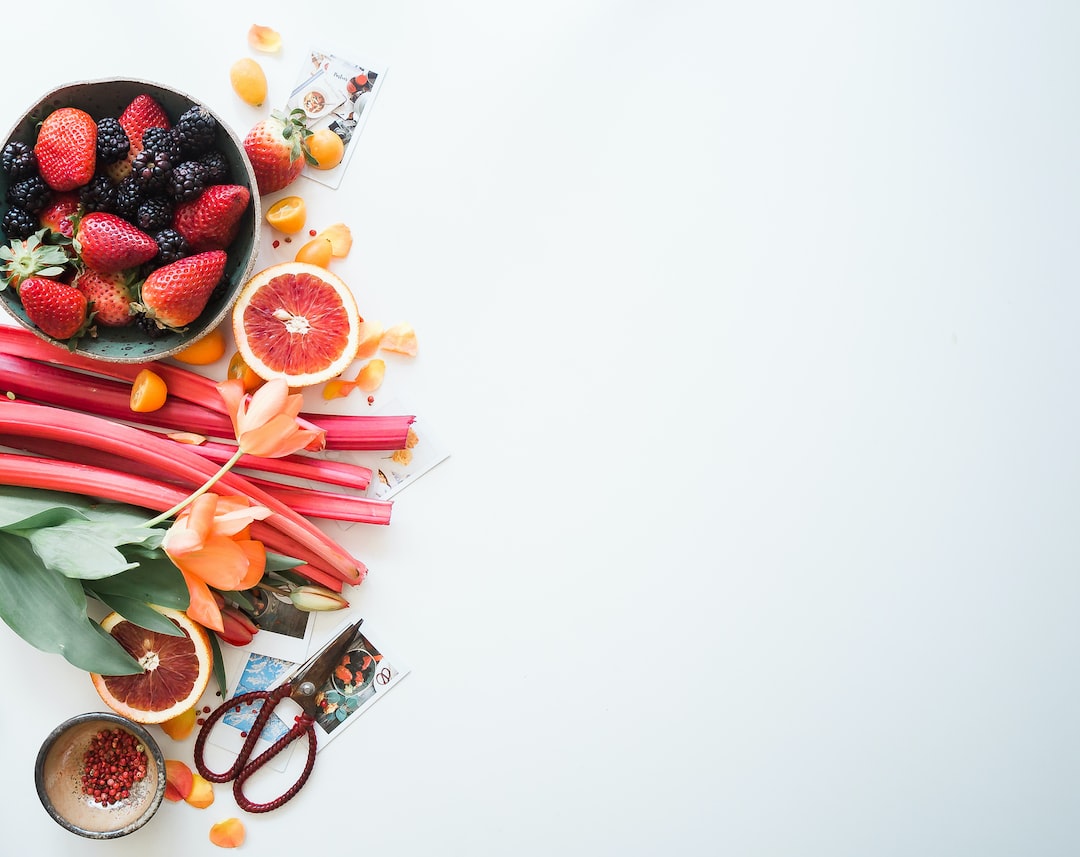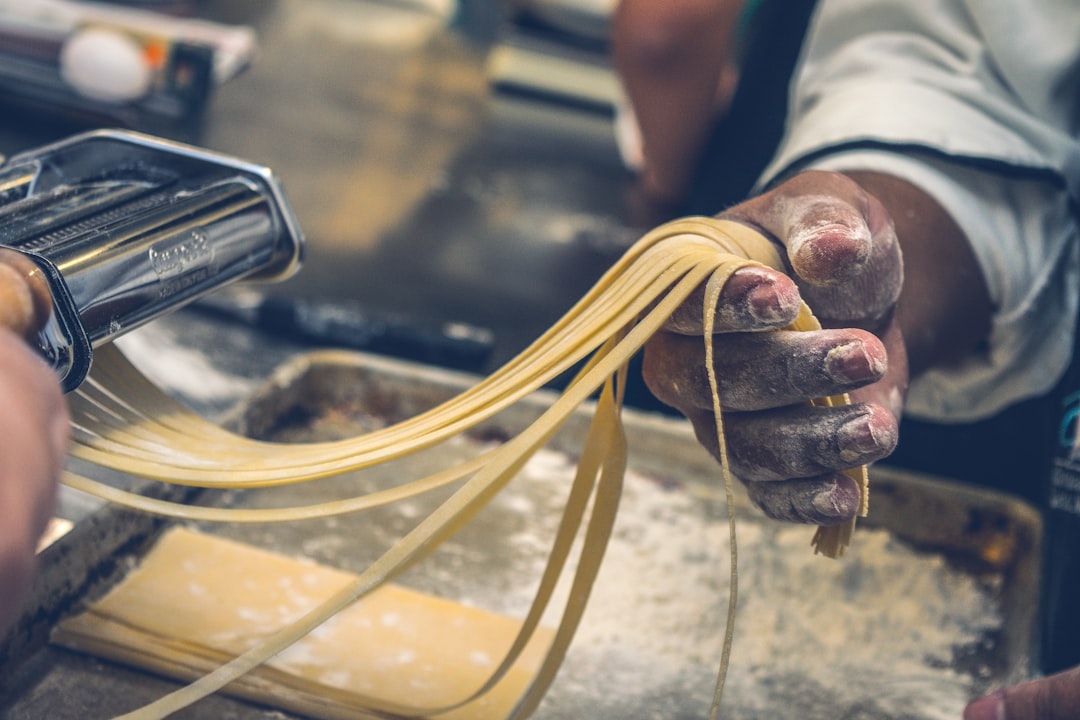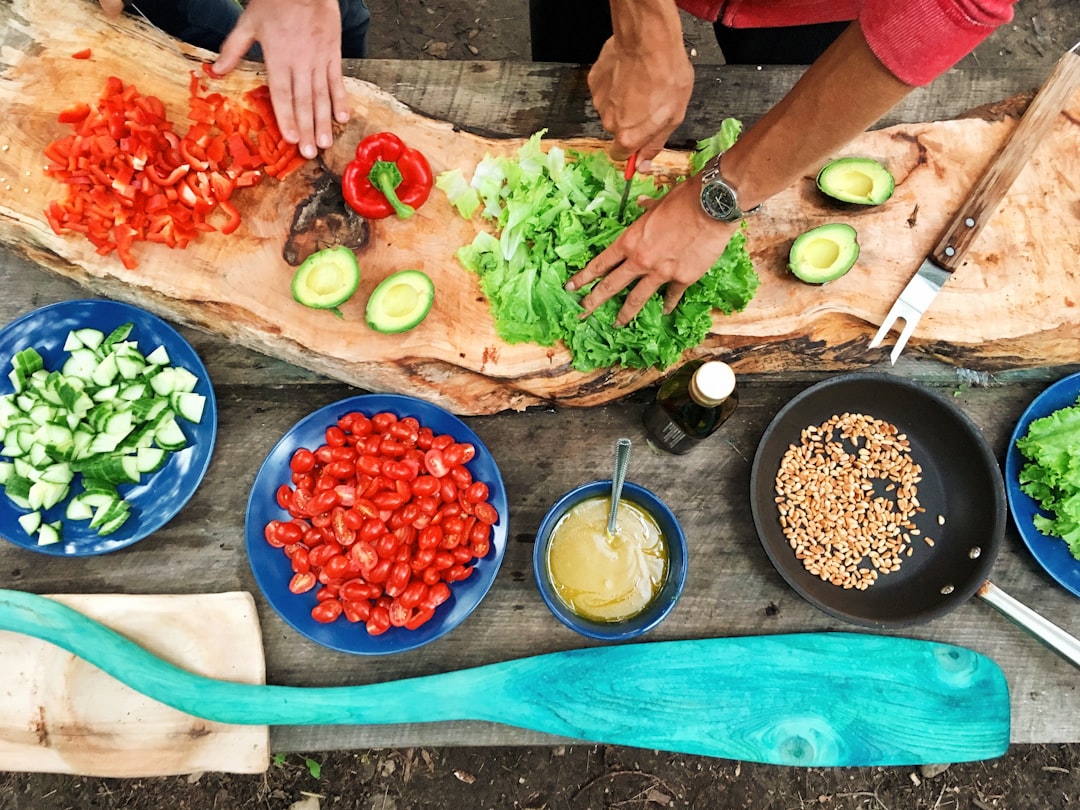1. Introduction
Welcome to our blog post on mindful cooking! In today’s fast-paced world, where we are often consumed by endless to-do lists and constant distractions, it’s important to take a step back and find moments of tranquility. One way to do this is through the practice of mindful cooking.
Mindful cooking involves bringing our full attention and awareness to the process of preparing and cooking meals. It is about being present in the moment, fully engaged with our senses, and cultivating a sense of gratitude for the nourishment we are about to provide ourselves and our loved ones.
When we approach cooking with mindfulness, we not only create delicious and nourishing meals, but we also benefit our overall well-being. Mindful cooking can bring us a sense of calm, reduce stress, and help us develop a greater appreciation for the food we consume.
In this blog post, we will delve into the concept of mindful cooking, explore its benefits, and provide you with practical tips for incorporating mindfulness into your meal preparation. So let’s embark on this mindful culinary journey together and discover the joys and rewards of mindful cooking!
What is Mindful Cooking?
Before we dive into the benefits and tips for practicing mindful cooking, it’s important to understand what exactly mindful cooking is. Mindful cooking is a practice that involves being fully present and engaged in the culinary experience. It goes beyond simply following a recipe or preparing a meal; it’s about cultivating awareness, intention, and gratitude in the kitchen.
When you practice mindful cooking, you bring your attention to the present moment and connect with the process of cooking on a deeper level. It’s about slowing down, paying attention to the sights, sounds, smells, and textures of the ingredients, and embracing the joy of cooking as a mindful meditation.
Many of us lead busy lives, rushing through our meal preparations without truly taking the time to appreciate the food we are creating. Mindful cooking provides an opportunity to change that. By incorporating mindfulness into our cooking routines, we can transform a mundane task into a meaningful, nourishing, and enjoyable experience.
In mindful cooking, every step of the process holds significance. From selecting fresh ingredients to chopping, sautéing, and simmering, each action can be performed mindfully, with intention and care. By doing so, we not only enhance the flavors and quality of our food but also cultivate a deeper sense of connection with our meals.
Ultimately, mindful cooking is about embracing the journey rather than focusing solely on the end result. It’s an invitation to engage all our senses, celebrate the act of nourishing ourselves and loved ones, and take a break from the fast-paced nature of modern life. It allows us to tap into our creativity, express ourselves through food, and create a harmonious relationship between our bodies, minds, and the meals we prepare.
Now that we have a better understanding of what mindful cooking entails, let’s explore the myriad benefits it can bring to our lives in the next section.
From selecting fresh ingredients to chopping, sautéing, and simmering, each action can be performed mindfully, with intention and care.
Benefits of Mindful Cooking
Mindful cooking is more than just a trendy culinary practice. It offers numerous benefits that go beyond preparing a meal. By engaging in mindful cooking, you can experience positive changes in your overall well-being, both physically and mentally.
1. Reduced stress levels: Cooking and preparing meals can often feel like a chore, but with mindful cooking, it becomes a form of relaxation and stress relief. Paying attention to each step of the cooking process, from ingredient selection to chopping and sautéing, allows you to focus on the present moment, leaving worries and anxiety behind.
2. Increased creativity: Mindful cooking opens up a world of creativity in the kitchen. As you become more present and attentive, you start experimenting with new ingredients, flavor combinations, and cooking techniques. This will not only result in unique and exciting dishes but also enhance your culinary skills.
3. Improved relationship with food: Mindfulness cultivates a deeper connection with the food we eat. By consciously choosing fresh, wholesome ingredients and appreciating the effort that goes into its preparation, we develop a greater respect for the nourishment we provide to our bodies. This can lead to healthier food choices and a more positive relationship with eating.
4. Enhanced sensory experience: Mindful cooking amplifies our senses and allows us to fully immerse ourselves in the culinary experience. When we pay close attention to the colors, textures, and aromas of the ingredients, we awaken our taste buds and make each dish a feast for the senses.
5. Increased mindfulness in everyday life: The practice of mindful cooking can extend beyond the kitchen and spill over into other aspects of life. By training ourselves to be present and fully engaged while cooking, we become more mindful of our actions and experiences in other areas as well, leading to a more fulfilling and intentional life.
6. Strengthened focus and concentration: Cooking mindfully requires complete focus on the task at hand. This sharpens our concentration skills and allows us to fully engage with the cooking process. As a result, we develop a heightened sense of focus that can be transferred to other areas of our lives, improving productivity and efficiency.
7. Sense of accomplishment: Mindful cooking provides a great sense of accomplishment and satisfaction. It allows us to take pride in creating something delicious and nourishing with our own hands. This feeling of achievement can boost self-confidence and instill a sense of joy and contentment.
By incorporating mindful cooking into your daily routine, you can enjoy these benefits and transform the way you approach cooking and food. So, let’s embark on this delightful journey of mindfulness in the kitchen and savor the multitude of rewards it brings.
Sense of accomplishment: Mindful cooking provides a great sense of accomplishment and satisfaction.
Tips for Practicing Mindful Cooking
Mindful cooking involves being fully present and aware while preparing your meals, allowing you to engage all your senses and find joy in the cooking process. Here are some valuable tips to help you practice mindful cooking:
- Prepare in a calm environment: Create a peaceful and clutter-free space to cook in. This can help you focus on the task at hand and avoid unnecessary distractions.
- Start with intention: Before you start cooking, take a moment to set your intention for the meal. Consider the nourishment you want to provide to yourself and your loved ones through the food you prepare.
- Engage your senses: Pay attention to the colors, textures, and aromas of the ingredients. Take a moment to appreciate the vibrant colors of fresh vegetables, the earthy scent of herbs, and the sound of sizzling in the pan.
- Practice mindful chopping and slicing: When cutting ingredients, focus on the sensation of chopping or slicing. Feel the weight of the knife in your hand, the resistance of the ingredients, and the rhythmic motion of your arm.
- Maintain awareness of your breath: Throughout the cooking process, bring your attention to your breath. Notice the inhales and exhales as you stir, sauté, or taste your dishes. This can help ground you in the present moment.
- Slow down and savor the process: Resist the urge to rush through the cooking process. Instead, take your time and savor each step. Truly immerse yourself in the task at hand, enjoying the simple act of preparing a meal.
- Minimize distractions: Turn off the TV, put away your phone, and focus solely on cooking. By eliminating distractions, you can fully engage in the cooking process and experience a deeper sense of mindfulness.
- Cultivate gratitude: As you cook, express gratitude for the ingredients, the hands that grew or prepared them, and the opportunity to nourish yourself and others. This mindful practice can bring a sense of appreciation and joy to your cooking.
- Experiment and be creative: Mindful cooking encourages experimentation and creativity in the kitchen. Don’t be afraid to try new recipes, modify existing ones, or experiment with different flavors and seasonings. Embrace the joy of culinary exploration.
- Embrace imperfections: Cooking is not about achieving perfection; it’s about the experience and the love you put into your meals. Embrace any mistakes or imperfections as part of the journey, learning from them and growing as a mindful cook.
By incorporating these tips into your cooking routine, you can transform meal preparation into a mindful and enjoyable experience. Remember, mindful cooking is not about the end result alone, but about the entire journey from the start to the finish of each dish.
This can help ground you in the present moment.
Incorporating Mindfulness into Meal Preparation
In our fast-paced world, meal preparation often becomes just another task on our never-ending to-do list. However, incorporating mindfulness into the process can transform meal preparation into a nourishing and enjoyable experience. Mindful cooking is about cultivating presence and being fully engaged in the present moment while preparing food.
To begin with, start by setting an intention for your meal preparation. Consider the purpose behind the meal you are cooking. Are you cooking for yourself or for others? Are you looking to create a comforting meal or perhaps trying out a new recipe? By setting an intention, you bring mindfulness to the forefront and infuse your cooking with a sense of purpose and meaning.
Next, create a calm and conducive environment for meal preparation. Clear the clutter from your kitchen counter, put away distractions like phones or tablets, and create a serene atmosphere. Play some relaxing music or light a scented candle to set the mood. Take a moment to acknowledge and appreciate the ingredients you will be using, recognizing the effort and energy that went into their production.
As you begin chopping vegetables or measuring ingredients, engage all your senses. Notice the vibrant colors, the textures, and the aromas. Listen to the sounds of sizzling or knife cutting through vegetables. Fully immerse yourself in the sensory experience of meal preparation. This not only helps you connect with the ingredients but also brings you into the present moment, away from any worries or stress.
While cooking, practice gratitude for the food you are preparing. Consider the journey the ingredients took to reach your kitchen. Reflect on the farmers who grew the produce, the hands that harvested them, and the countless people involved in the supply chain. Expressing gratitude for the food we have helps foster a deeper appreciation for the nourishment it provides and can enhance our overall enjoyment of the meal.
Furthermore, be mindful of the actions you take as you cook. Slow down your movements and focus on each step. Notice the sensations of stirring, flipping, or sautéing. Pay attention to how the ingredients come together and how flavors develop. By being fully present during meal preparation, you can enhance your culinary skills and create dishes that are truly flavorful and satisfying.
Lastly, remember to be kind to yourself. Cooking can sometimes be stressful, especially if you are trying new recipes or hosting guests. Embrace imperfections and mistakes as part of the learning process. Maintain a gentle and non-judgmental attitude towards yourself and your cooking. Mindful cooking is not about achieving culinary perfection; it is about enjoying the process and nurturing yourself and others through food.
Incorporating mindfulness into meal preparation can turn this daily chore into a meaningful ritual. By setting intentions, creating a calm environment, engaging your senses, expressing gratitude, and being present throughout the cooking process, you can transform the way you approach meal preparation. So, let’s bring mindfulness into our kitchens and savor the joy of cooking and nourishing ourselves and our loved ones.
Incorporating mindfulness into meal preparation can turn this daily chore into a meaningful ritual.
Mindful Eating: Savoring the Flavors
When it comes to mindful cooking, the experience doesn’t end after the meal is prepared. Mindful eating is an essential component that allows us to fully savor the flavors and appreciate the nourishment we receive from our meals. It involves being present in the moment, engaging all our senses, and creating a deeper connection with the food we consume.
One of the key principles of mindful eating is slowing down. In our fast-paced lives, it’s easy to rush through meals, barely taking a moment to chew and taste the food properly. However, by slowing down, we allow ourselves to truly experience the flavors, textures, and aromas of what we eat.
To practice mindful eating, start by taking smaller bites and thoroughly chewing each mouthful. This not only aids in digestion but also enhances the pleasure of eating. Pay attention to the taste and textures as you chew, noticing the sensations in your mouth and how the flavors evolve.
Another aspect of mindful eating is paying attention to portion sizes. While it’s important to nourish our bodies adequately, it’s equally crucial not to overeat. By being mindful of portion sizes, we can better listen to our bodies’ hunger and fullness cues and avoid mindlessly consuming excessive amounts of food.
Furthermore, engaging all our senses while eating is a wonderful way to enhance the mindful experience. Take a moment to appreciate the visual presentation of your food, noticing the vibrant colors and textures. Inhale deeply and allow the aromas to stimulate your senses. As you take your first bite, let the flavors explode on your palate, savoring each taste sensation as it unfolds.
Mindful eating also involves being fully present and avoiding distractions during meals. Put away electronic devices, turn off the television, and create a calm and peaceful environment that promotes focus on the present moment. This allows you to truly connect with your food and the act of eating, fostering a greater appreciation for the nourishment it provides.
In addition to savoring the flavors and engaging our senses, mindful eating encourages self-reflection. Take a moment to contemplate the source of the food on your plate, appreciating the effort and energy that went into its production. Reflect on the journey from farm to table, acknowledging the labor, care, and resources involved in bringing each ingredient to your plate.
By practicing mindful eating, we can transform our meals into moments of mindfulness, deepening our connection with food and nurturing a healthier relationship with what we consume. It allows us to appreciate the nourishment, flavors, and experiences that food brings us, leading to a more fulfilling and satisfying culinary journey.
It allows us to appreciate the nourishment, flavors, and experiences that food brings us, leading to a more fulfilling and satisfying culinary journey.
Conclusion
In conclusion, mindful cooking is more than just a way to prepare a meal; it is a state of mind that allows us to fully engage in the present moment and cultivate a sense of gratitude and awareness in our everyday lives. By practicing mindful cooking, we can experience numerous benefits that extend beyond the kitchen.
By being fully present and attentive during the cooking process, we can not only enhance the flavors and textures of our meals but also develop a deeper connection with the ingredients we use. Mindful cooking can bring a sense of calmness and clarity to our minds, relieving stress and promoting overall well-being.
The benefits of mindful cooking are not limited to our mental and emotional health. When we practice mindful cooking, we also tend to make healthier choices, as we become more conscious of the ingredients we use and the impact they have on our bodies. This can result in improved nutrition and overall wellness.
By incorporating mindfulness into meal preparation, we transform a mundane task into an opportunity for self-care and self-expression. Engaging all our senses and focusing on the present moment allows us to appreciate the process of creating nourishing meals and fosters a deeper connection with the food we consume.
Furthermore, mindful cooking naturally complements mindful eating. By savoring the flavors, textures, and aromas of our food, we can truly enjoy and appreciate each bite. This fosters a healthier relationship with food, as we become more attuned to our body’s hunger and fullness cues, and are less likely to overeat or indulge in mindless snacking.
Incorporating mindfulness into our cooking and eating routines can be done in simple ways, such as focusing on breath while chopping vegetables, or taking a moment to express gratitude before enjoying a meal. These small rituals create a sense of intention and appreciation, ultimately enriching our overall experience with food.
So, next time you step into the kitchen, consider bringing a mindful approach to your cooking. Embrace the present moment, immerse yourself in the process, and let go of any distractions. By practicing mindful cooking, you can transform meal preparation into a therapeutic and gratifying practice that nourishes both body and soul.





